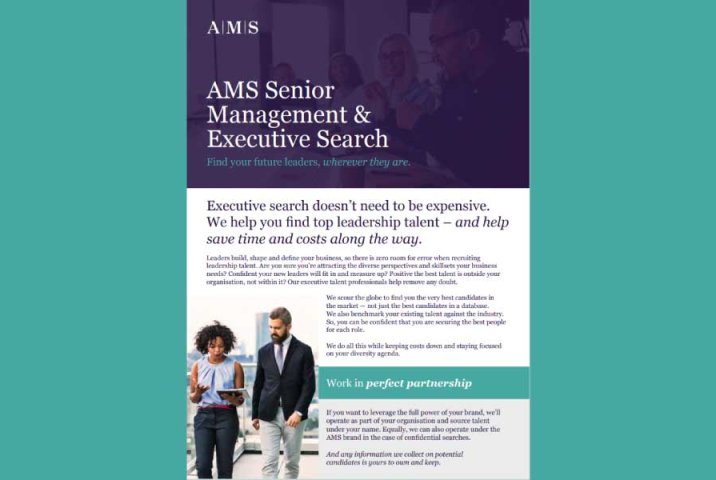What is Flexible Recruitment Process Outsourcing (RPO)?

Businesses across the globe are seeing a recruitment boom as post-pandemic growth continues, and many have faced this shift with under-resourced recruitment teams. An organization might be launching a new product, expanding into a new market, or experiencing rapid growth – all of which result in immediate and urgent hiring needs. In many of these cases, we find that Flexible RPO or RPO On-Demand can help organizations achieve their short-term hiring goals while helping to prepare for the future.
What is Flexible Recruitment Process Outsourcing (RPO)?
Flexible Recruitment Process Outsourcing (RPO) is an RPO model where companies can work with a provider on an as-needed basis. Flexible RPO is often referred to as Project RPO or On-Demand RPO. This model allows companies to scale their recruitment services according to demand – increasing services during periods of peak demand and decreasing services during hiring lulls.
Flexible RPO vs Enterprise RPO
Flexible RPO differs from traditional, full-service RPO in a few ways, primarily in the key drivers and length of engagement. A traditional RPO engagement often lasts more than two years as companies look for continuous support with both tactical and strategic recruitment. Flexible or Project RPO, on the other hand, is most commonly from four to six months, and sometimes up to a year or two.
Additionally, traditional RPO is an option for companies looking to support complex, long-term talent acquisition strategies, while Flexible RPO offers more flexibility to support distinct and immediate needs.
Benefits of Flexible RPO
Flexible RPO offers many benefits to companies looking for options tailored to their recruiting needs. Benefits of flexible RPO include:
- Rapid scalability
- Cost-effective
- Access to expertise
- Agility in hiring
- Building long-term capacity
- Access to a broad talent pool
Rapid scalability
With flexible RPO, you have the ability to rapidly scale your recruitment efforts based on current needs. If you have a project that needs immediate staffing, you can scale up efforts. Once those needs are met, you can reduce your commitment and reduce costs accordingly.
Cost-effective
This model is a cost-effective solution to meet short-term recruitment needs while still partnering with an expert-level RPO provider. It allows you to get the best of both worlds – short-term recruiting with the experience and expertise of an established RPO consultancy.
Access to expertise
By working with an established RPO service provider like AMS, you get access to world-class expertise to meet your project's needs. This allows you to be strategic in your approach while leveraging a partner whose experience and skills can enhance the recruiting process.
Agility in hiring
If a project suddenly gets funding or you experience rapid-growth, a flexible RPO model provides you with the ability to scale on-demand.
Building long-term capacity
One of the main benefits of flexible RPO is the ability to build up long-term capacity with your RPO partner. Not only can you meet short-term needs, but you can consider long-term, strategic recruiting objectives. With flexible RPO you can work on recruiting strategies, onboarding, and retention strategies while meeting needs as they arise.
Access to a broad talent pool
A challenge of the 'do-it-yourself' approach to recruiting is that you have limited access to talent. Flexible RPO gives you the ability to tap into a broader, more diverse talent pool through your RPO provider.
How Flexible RPO works
Flexible RPO works by establishing a strategic partnership between your company and the RPO service provider to address some or all parts of your recruitment process. At AMS, we've worked with clients to pull together hiring teams from our existing bench of experts who are immersed in talent acquisition best practices.
A good example is our relationship with a global leader in medical technology, service and solutions. We were already working with them on Enterprise RPO when they came to us looking to recruit for a new product launch. They needed a sales team of 55 people for launch and wanted the team ready within six months. We started the assignment straight away, bringing together a team of four experienced recruiters.
Within a month, we began posting adverts for the roles using social media where we shared information about the jobs and why the client was an attractive employer. We made these articles easily shareable and ensured the application process was mobile-friendly in order to drive candidate engagement. We successfully completed the hiring process on time and the client was able to get the project live as scheduled.
Flexibility in hiring
Another reason for the huge volume of recruiting is that many organizations have a backlog of hiring. The pandemic meant many positions were made redundant and hiring was paused, but as the world came back online so did recruitment. Organizations are trying to meet current needs and backfill roles that were lost in the past several years. This is where the flexibility of Project RPO can really help organizations that need to recruit at scale quickly.
A good example is our relationship with a global sportswear company. Before COVID-19, we would help the client recruit 300-400 employees per month using a team of more than 20 people. When the pandemic hit, recruitment dropped by 90%, with the company only hiring 10-12 people per month. We had to reduce our team drastically to accommodate for the change, but we didn’t make any redundancies. Instead, we moved these people to other projects within our organization. As the economy rebounded, the client’s hiring went back up to 100-200 people per month and now the volume is even higher – at more than 400 people per month. We were able to move our people back to working with the client as the volume grew to meet the demand.
This example fully showcases our flexibility. Had the client had their own people in recruitment, they would have had to make redundancies and then rehire quickly. By using AMS, they were able to flex with the downturn and alter recruitment needs effectively.
New talent pools
The rapid rise in headcount among organizations globally means businesses have had to look beyond traditional talent pools. In the past, it has been easy to simply look at hiring from direct competitors. However, in a booming recruitment situation, that might not always work as they are likely facing the same challenges.
With Project RPO we have the sourcing expertise to talk to our clients about being more creative with their hiring pools. For example, financial services organisations often want to hire bankers from their competitors. But could they look for similar skill sets in other industries and then train those people for the knowledge needed in finance? If connections to wealthy individuals or businesses are needed, perhaps look to luxury sales or property and train people with experience there in finance. In addition, we advise HR and line managers to be more open-minded about work locations.
The pandemic has shown that remote working can succeed, so could organizations broaden their talent pools by looking to new locations or populations they normally don’t immediately think to hire, such as returning mothers or retirees? By becoming more open-minded about talent pools outside the usual suspects, our clients can gain more success across their talent acquisition needs.
More articles
An eye on tomorrow: Top TA trends in banking Copy
This whitepaper explores how the banking industry can navigate evolving hiring needs amidst global uncertainty, focusing on digital transformation, agile talent processes, and diversity, equity, and inclusion (DEI) strategies to stay ahead of future challenges.
Early careers and campus: crafting a strategy for the next generation of talent
Adapt to market changes, leverage new technologies, and drive long-term success.








